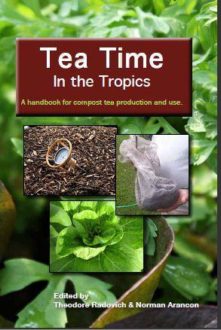Water-based extracts of compost (compost “tea”) have long been recognized as potentially valuable in promoting plant growth. Recent innovations in production and application have popularized tea use among food producers, landscape managers and others interested in promoting plant health. This renewed interest in compost tea has made the input fairly controversial. Unfortunately, our ability to effectively employ compost teas to their full advantage is severely limited by our poor understanding of the interactions between compost type, crop and environmental factors as they relate to plant yield and quality, particularly under tropical conditions. These gaps in our knowledge limit the efficacy of compost tea applications on the farms that currently employ this strategy, and seriously restrict the extension and adoption of compost tea technology to conventional farms that want to improve the sustainability of their operations.
The purpose of this book is to critically evaluate the phenomenon of compost tea from three general perspectives: growers, researchers and industry. By integrating these perspectives into a cumulative experience, the authors hope to improve the understanding of the potential and limitations of this technology from scientific, economic and practical points of view.
Want more information? See the related SARE grant:
- Enhancing Phytonutrient Content, Yield and Quality of Vegetables with Compost Tea in the Tropics (SW07-073)
This material is based upon work that is supported by the National Institute of Food and Agriculture, U.S. Department of Agriculture through the Sustainable Agriculture Research and Education (SARE) program. Any opinions, findings, conclusions, or recommendations expressed in this publication are those of the author(s) and should not be construed to represent any official USDA or U.S. Government determination or policy.
